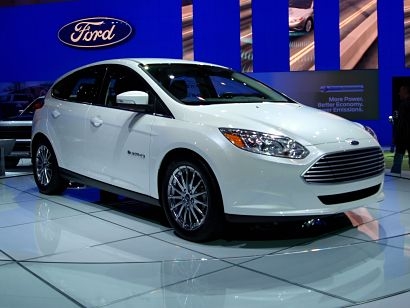
Speaking at the Society of Motor Manufacturers and Traders International Automotive Summit Live 2020 online event, Hoare said: “A successful future for the auto industry is dependent on achieving our longer-term objective of a zero emissions future – that is definitely the path we are on at Ford.
“However, we should be under no illusion that reaching this goal will require an unparalleled level of commitment and cooperation by a range of different stakeholders – government departments, local authorities, the auto industry, energy providers, and customers. We need government to partner with us and have joint equity in formulating and delivering a comprehensive and consistent strategy that encompasses all stakeholders and that provides a path to the future – a path that also encompasses a range of technologies, including mild hybrids, hybrids and plug-in hybrids on the route to zero emissions.”
Citing the example of Norway which has provided consumers with consistent zero emissions incentives over the past 30 years (both purchasing incentives with zero purchase tax, plus social incentives such as cheaper road tolls and ferry fares, use of bus lanes and cheaper parking), and which has a recharging infrastructure with a density six times per person higher than that in the UK today, Hoare outlined some of the key considerations for a strategy for the UK. These include:
Incentives – both purchase and usage incentives – that encourage consumers to adopt new technologies – not just for all-electrics but for other technologies such as PHEVs that will pave the way for a zero emissions future
Infrastructure – a quantum leap in the number and geographical spread of recharging points including on-street, workplace, destination and high-speed charging that provides customers with the confidence of accessibility regardless of where they live in the UK. At present, 40 per cent of the total national recharging infrastructure located in the South East
Energy generation – a decision on what technologies will provide the UK with the electrical power it needs in a clean and efficient manner in the years ahead to support the growth of zero emissions vehicles
Vehicles – the auto industry needs to provide the breadth and volume of vehicles and personal transport options that provide our customers with the freedom to travel and live their lives to the full
“Given the size and scale of what we want to achieve in the UK, we will not see a shift from the internal combustion engine to all-electric vehicles in a single jump” Mr Hoare added. “Customer confidence is not ready for leap yet, and the cost gap between petrol or diesel and all-electric vehicles is still significant. This is why a range of bridging technologies from mild hybrids through to plug-in hybrids are essential, and why plug-in hybrids also should be considered as a viable technology well into the 2030s. We’ve seen recently at Ford what can be achieved when different stakeholders come together with a common purpose, namely working in partnership with a wide range of different partners in the VentilatorChallengeUK building ventilators for the NHS. We need a similar spirit of endeavour if we are to meet the electrification challenge – not a ‘can do’ attitude but a ‘will do’ determination. But time is short, and we must start today because tomorrow will be too late.”
For additional information:

